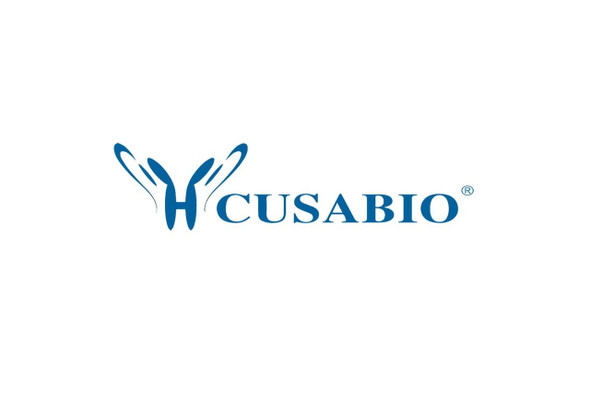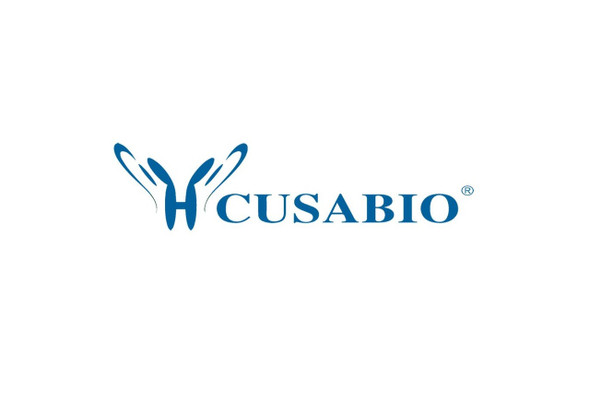Cusabio Human herpesvirus 1 Recombinants
Recombinant Human herpesvirus 1 Envelope glycoprotein B (gB), partial | CSB-EP318023HWY
- SKU:
- CSB-EP318023HWY
- Availability:
- 13 - 23 Working Days
Description
Recombinant Human herpesvirus 1 Envelope glycoprotein B (gB), partial | CSB-EP318023HWY | Cusabio
Alternative Name(s): gB; UL27Envelope glycoprotein B; gB
Gene Names: gB
Research Areas: Others
Organism: Human herpesvirus 1 (strain 17) (HHV-1) (Human herpes simplex virus 1)
AA Sequence: APSSPGTPGVAAATQAANGGPATPAPPAPGAPPTGDPKPKKNRKPKPPKPPRPAGDNATVAAGHATLREHLRDIKAENTDANFYVCPPPTGATVVQFEQPRRCPTRPEGQNYTEGIAVVFKENIAPYKFKATMYYKDVTVSQVWFGHRYSQFMGIFEDRAPVPFEEVIDKINAKGVCRSTAKYVRNNLETTAFHRDDHETDMELKPANAATRTSRGWHTTDLKYNPSRVEAFHRYGTTVNCIVEEVDARSVYPY
Source: E.coli
Tag Info: N-terminal 10xHis-tagged and C-terminal Myc-tagged
Expression Region: 31-284aa
Sequence Info: Partial
MW: 34.9 kDa
Purity: Greater than 90% as determined by SDS-PAGE.
Relevance: Envelope glycoprotein that forms spikes at the surface of virion envelope. Essential for the initial attachment to heparan sulfate moities of the host cell surface proteoglycans. Involved in fusion of viral and cellular membranes leading to virus entry into the host cell. Following initial binding to its host receptors, membrane fusion is mediated by the fusion machinery composed at least of gB and the heterodimer gH/gL. May be involved in the fusion between the virion envelope and the outer nuclear membrane during virion egress. Also plays a role, together with gK, in virus-induced cell-to-cell fusion
Reference: "Herpes simplex virus type 1 gK is required for gB-mediated virus-induced cell fusion, while neither gB and gK nor gB and UL20p function redundantly in virion de-envelopment." Melancon J.M., Luna R.E., Foster T.P., Kousoulas K.G. J. Virol. 79:299-313(2005)
Storage: The shelf life is related to many factors, storage state, buffer ingredients, storage temperature and the stability of the protein itself. Generally, the shelf life of liquid form is 6 months at -20?/-80?. The shelf life of lyophilized form is 12 months at -20?/-80?.
Notes: Repeated freezing and thawing is not recommended. Store working aliquots at 4? for up to one week.
Function: Envelope glycoprotein that forms spikes at the surface of virion envelope. Essential for the initial attachment to heparan sulfate moities of the host cell surface proteoglycans. Involved in fusion of viral and cellular membranes leading to virus entry into the host cell. Following initial binding to its host receptors, membrane fusion is mediated by the fusion machinery composed at least of gB and the heterodimer gH/gL. May be involved in the fusion between the virion envelope and the outer nuclear membrane during virion egress (By similarity). Also plays a role, together with gK, in virus-induced cell-to-cell fusion (syncytia formation).
Involvement in disease:
Subcellular Location: Virion membrane, Single-pass type I membrane protein, Host cell membrane, Single-pass type I membrane protein, Host endosome membrane, Single-pass type I membrane protein, Host Golgi apparatus membrane, Single-pass type I membrane protein
Protein Families: Herpesviridae glycoprotein B family
Tissue Specificity:
Paythway:
Form: Liquid or Lyophilized powder
Buffer: If the delivery form is liquid, the default storage buffer is Tris/PBS-based buffer, 5%-50% glycerol. If the delivery form is lyophilized powder, the buffer before lyophilization is Tris/PBS-based buffer, 6% Trehalose, pH 8.0.
Reconstitution: We recommend that this vial be briefly centrifuged prior to opening to bring the contents to the bottom. Please reconstitute protein in deionized sterile water to a concentration of 0.1-1.0 mg/mL.We recommend to add 5-50% of glycerol (final concentration) and aliquot for long-term storage at -20?/-80?. Our default final concentration of glycerol is 50%. Customers could use it as reference.
Uniprot ID: P10211
HGNC Database Link: N/A
UniGene Database Link: N/A
KEGG Database Link: KEGG
STRING Database Link: N/A
OMIM Database Link: N/A









